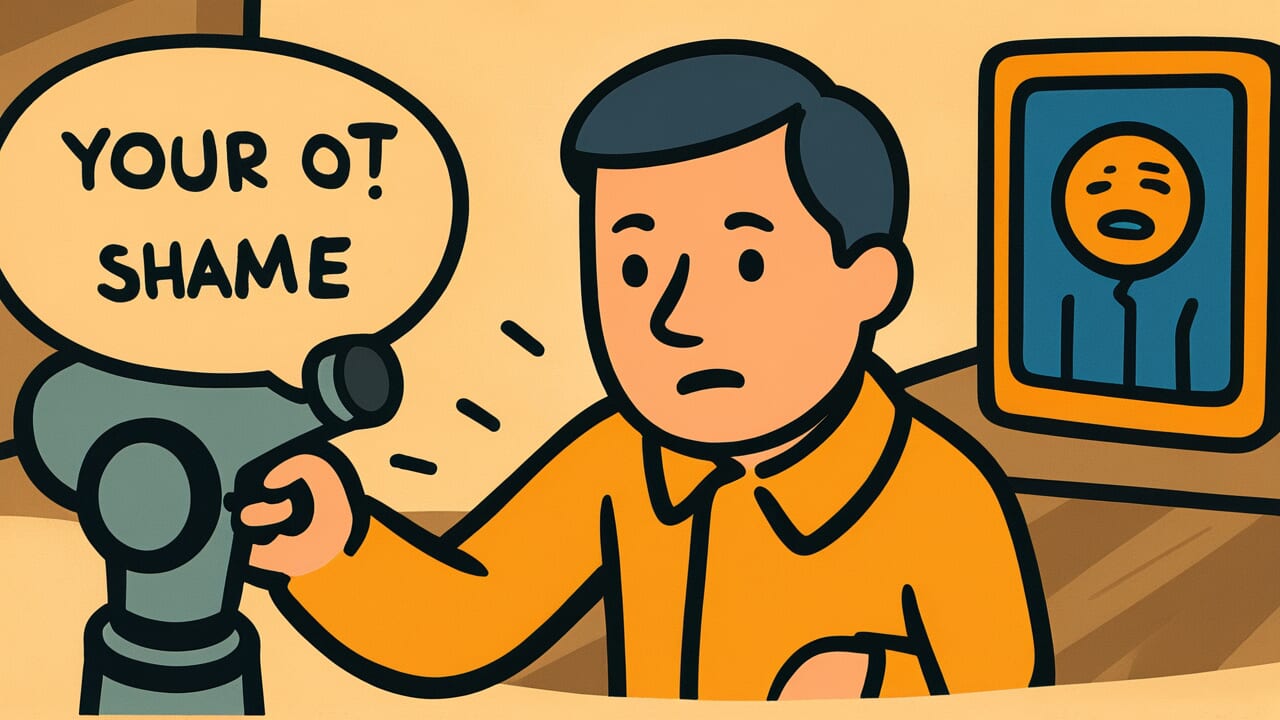How to Read “If you don’t know shame, you won’t feel shame”
Haji o shiraneba haji kakazu
Meaning of “If you don’t know shame, you won’t feel shame”
This proverb expresses an ironic truth about human psychology. People who don’t recognize shame as shame never experience embarrassment.
The experience of feeling ashamed only happens when you have the sensitivity to recognize your actions as shameful.
This expression is used when observing people who act shamelessly or ignore social manners. Such people feel no psychological pain because they don’t perceive their actions as shameful, regardless of what others think.
Even today, people use this saying about those who act brazenly. It means “people who don’t know shame are strong.”
This is not necessarily a compliment. It often carries a critical tone.
The proverb paradoxically teaches us the importance of having a sense of shame.
Origin and Etymology
The exact origin of this proverb is unclear. However, the structure of the phrase offers interesting insights.
“If you don’t know shame, you won’t feel shame” sounds paradoxical at first. It captures an essential truth about human psychology.
The act of feeling shame only exists when you have the awareness to recognize it.
Japan has long been rooted in a “culture of shame.” People strongly consider the eyes of others and social evaluation.
However, this sensitivity only emerges when you can recognize shame as shame. This proverb likely arose from observing this aspect of Japanese mentality.
The phrase structure combines two negative forms: “shiraneba” (if you don’t know) and “kakazu” (won’t feel). This creates an effect similar to a double negative.
It expresses the ironic truth that people who don’t understand the concept of shame feel no psychological pain even when acting shamefully.
Some say this proverb spread among common people during the Edo period. It crystallizes the wisdom of people who observed various social classes.
They noticed that the presence or absence of sensitivity to shame greatly influences human behavior.
Usage Examples
- That person embodies “if you don’t know shame, you won’t feel shame” – no matter how much criticism they receive, they remain unfazed
- “If you don’t know shame, you won’t feel shame” is well said – the more shameless people are, the more confident they act
Universal Wisdom
“If you don’t know shame, you won’t feel shame” offers deep insight into the relationship between human emotion and perception.
Much of the pain and joy we feel comes not from objective facts themselves. It comes from how we perceive and interpret those facts.
The emotion of shame has played an important role for humans as social animals. By caring about others’ eyes and internalizing social norms, we maintain harmony within our communities.
However, this proverb teaches us a fact: for those without this sensitivity, the pain of shame simply doesn’t exist.
This reveals the mystery of the human mind. The same action makes one person deeply ashamed while another feels nothing.
This difference arises from upbringing, values, and sensitivity. Our ancestors observed this human diversity.
They realized that the presence or absence of sensitivity greatly affects how people live their lives.
This proverb has been passed down through generations because it addresses an eternal dilemma of human society.
A sense of shame sometimes causes us suffering. Yet at the same time, it is proof of our humanity.
When AI Hears This
This proverb identifies a strange flaw in the human cognitive system. Psychologists Dunning and Kruger published experimental results showing that less competent people overestimate their abilities.
For example, students who scored in the bottom 12 percent believed they were in the top 38 percent. Why does this happen?
Because “the ability to recognize your mistakes” and “the ability to act correctly” both come from the same knowledge.
In other words, people with the intelligence to judge shameful behavior also recognize their own behavior as shameful.
Meanwhile, people who cannot understand what is shameful don’t think their own actions are shameful either.
This is called “lack of metacognition” – a state where the ability to view yourself objectively is missing.
What’s more interesting is that people in this state rarely improve even when others point it out. Understanding the criticism requires the same ability they lack.
The intelligence to know shame creates both the risk of embarrassment and the possibility of growth. People can learn precisely because they can recognize their failures.
This paradox is the fundamental dilemma of the human cognitive system.
Lessons for Today
This proverb teaches us the meaning and value of having sensitivity. A sense of shame sometimes causes suffering and limits our actions.
However, it is also a vital ability for viewing ourselves objectively, imagining others’ feelings, and building better relationships.
In modern society, we are more conscious of others’ eyes through social media. Yet anonymous behavior without shame has also increased.
This proverb asks us not to envy the strength of feeling no shame. Instead, it encourages us to consider the meaning of cherishing a sense of shame.
When you feel embarrassed about something, it is not weakness. It is proof that you care about others and seek connection with society.
Having a sense of shame while not being overly bound by it, living authentically – this balance is the life wisdom this proverb asks us to consider.



Comments